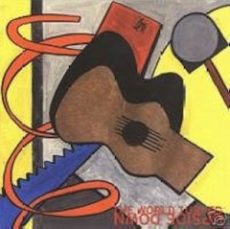
Daily Dose Of Jazz…
Keith Rowe was born March 16, 1940 in Plymouth, England. He began his career playing jazz in the early 1960s with Mike Westbrook and Lou Gare. His early influences were guitarists Wes Montgomery, Charlie Christian, and Barney Kessel. Growing tired of what he considered the genre’s limitations he began experimenting, stopped tuning his guitar and began playing free jazz and free improvisation.
Rowe developed prepared guitar techniques: placing the guitar flat on a table and manipulating the strings, body, and pick-ups in unorthodox ways. He has used needles, electric motors, violin bows, iron bars, a library card, rubber eraser, springs, hand-held electric fans, alligator clips, and common office supplies in playing the guitar.
Rowe has worked with Oren Ambarchi, Burkhard Beins, Cornelius Cardew, Christian Fennesz, Kurt Liedwart, Jeffrey Morgan, Toshimaru Nakamura, Evan Parker, Michael Pisaro, Peter Rehberg, Sachiko M, Howard Skempton, Taku Sugimoto, David Sylvian, John Tilbury, Christian Wolff, and Otomo Yoshihide.
Guitarist Keith Rowe, who was a founding member of both AMM in the mid-1960s, M.I.M.E.O. and is seen as a godfather of EAI electroacoustic improvisation, continues to compose, record and tour.
More Posts: bandleader,guitar,history,instrumental,jazz,music
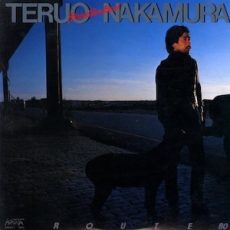
Daily Dose Of Jazz…
Teruo Nakamura was born on March 3, 1942 in Tokyo, Japan and everyone in his immediate family were artists. He studied at Nihon University before moving to New York City in 1964, where he studied with Reggie Workman.
In 1969 he joined drummer Roy Haynes’s ensemble and that same year he also formed a band with Steve Grossman and Lenny White, who both went on to play on his 1973 debut as a leader, the album Unicorn and Nakamura played both acoustic and electric bass on the album, which was released by Three Blind Mice.
Teruo formed the Rising Sun band in the mid-1970s. In 1977 this contained saxophonist Bob Mintzer, guitarist Shiro Mori, with Mark Gray on synthesizer, Art Gore on drums and Nobu Urushiyama on percussion.
The 1980s and 1990s saw him working principally as a record producer. Bassist and record producer Teruo Nakamura continues to perform and record.
More Posts: bass,history,instrumental,jazz,music,record producer
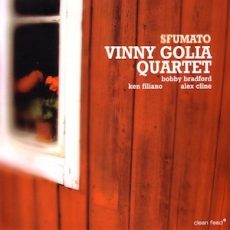
Daily Dose Of Jazz…
Vinny Golia was born March 1, 1946 in the Bronx, New York City. As a composer he fuses the rich heritage of jazz, contemporary classical music and world music. As a bandleader, he has presented his music in Europe, Canada, Mexico, Japan, Australia, New Zealand and the United States. His ensembles vary in size and instrumentation.
He founded the jazz record label Nine Winds in 1977 and has won numerous awards as a composer. In 1982 he created the ongoing 50-piece Vinny Golia Large Ensemble to perform his compositions for chamber orchestra and jazz ensembles.
A multi-woodwind performer, Vinny’s recordings have been consistently picked by critics and readers of music journals for their yearly “ten best” lists on JazzTimes, Cadence Magazine, DownBeat, LA Weekly, Jazziz and the Jazz Journalists Association honored him with a Lifetime Achievement Award.
Golia has been a featured performer with Anthony Braxton, Henry Grimes, Joëlle Léandre, Wadada Leo Smith, Horace Tapscott, John Zorn, Tim Berne, George E. Lewis, the Rova Saxophone Quartet, Patti Smith, Eugene Chadbourne, John Bergamo, George Gruntz, Lydia Lunch, and the Los Angeles Philharmonic Orchestra among numerous others.
Most recently, Golia has performed and toured with his sextet which features some of the new voices in the Los Angeles free-improv scene. Saxophonist and composer Vinny Golia, who also plays flute, English horn, clarinet, bassoon, tárogató, continues to expand and discover new avenues of exploration in his music.
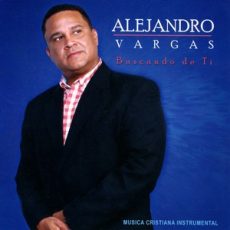
Daily Dose Of Jazz…
Alejandro Vargas Rodríguez was born on February 4, 1980 in Havana, Cuba and started his musical studies at six years old, receiving lessons from Joel Rodríguez Milord, Ulises Hernández and Harold Gramatges. These continued until he graduated as a concert pianist from the University ISA (Instituto Superior de Arte) in Havana. He completed his studies with different seminars led by Herbie Hancock, Chucho Valdés, Danilo Pérez or Jorge Luis Prats.
When he was 20 he recorded his first album Calor, performing the arrangements of Benny Moré compositions. He began his jazz career performing at the Festival Jazz Plaza while attending college.
Forming his first jazz trio he competed in the 2001 in the Jojazz competition winning 1st Prize. Two years later his band Alejandro Vargas and Oriental Quartet is one of the most recognized in the country. With this fame he began touring internationally and his album Trapiche recorded in was awarded the best jazz jazz album of the year in Cubadisco contest in 2008.
Experimenting with a wide range of styles he moves from abstract to traditional where jazz standards and popular Cuban music are taken to the aesthetic of free improvisation. His trio plays between the contemporary and the afrocuban. For two years in 2006 he was a professor of Harmony and Popular Piano at the University of Havana and worked as a composer of audio visual and documentary at the school of international cinema of San Antonio de los Baños.
Developing an intense work on free improvisation and free jazz, he continually explores new horizons. Pianist Alejandro Vargas Rodríguez is currently recording a new trio album across different landscapes from the sonority of the oriental organ evoking the rural Cuban fields to mambo to the blues to Monk’s minimalism.
More Posts: bandleader,history,instrumental,jazz,music,piano
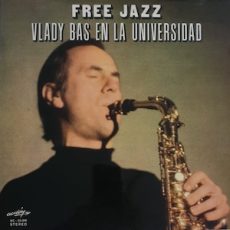
Daily Dose Of Jazz…
Vlady Bas was born Wladimiro Bas Zabache on February 2, 1929 in Bilbao, País Vasco, Spain. He moved to Madrid in 1952 and represented Spain at the 1958 Newport Jazz Festival. He was one of the first Spanish jazz musicians to play free jazz.
He has been associated with The International Youth Band, Jazztet de Madrid, Juan Carlos Calderon y Su Orquesta De Jazz, Louis Armstrong Newport International Jazz Band, Manolo Gas & The Tinto Band Bang, Orquesta Blue Stars, and Pepe Nieto Y Su Orquesta.
He founded the Vlady Bas Quartet, still on the road, now with his daughter Paula Bas as singer. The quartet members are Carlos Villa, guitar; Fernando Sobrino, piano; Antonio Domínguez, string bass and Antonio Calero, drums.
Saxophonist, clarinetist and flutist Vlady Bas is still on the road.
More Posts: bandleader,clarinet,flute,history,instrumental,jazz,music,saxophone



